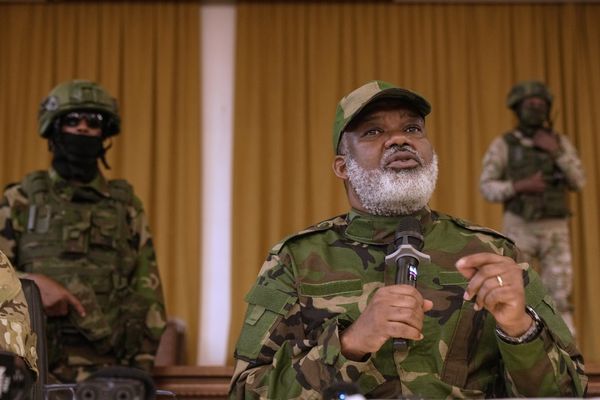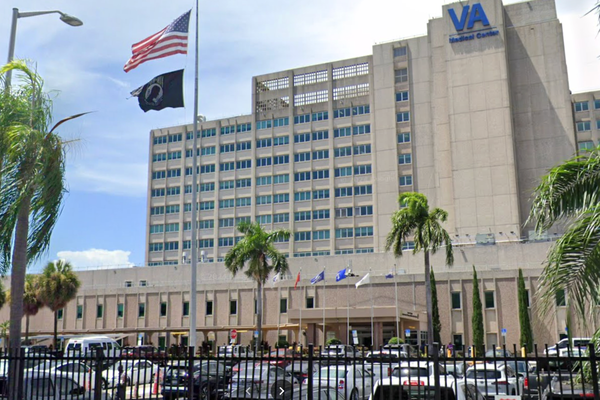
It was a feel-good story most of the media immediately fell for: Australian greyhounds would be sent to the US as therapy dogs for retired police officers under a deal between Greyhound Racing NSW (GRNSW) and a US police union.
“Retired Australian greyhounds to call USA home and serve as companion animals,” reported the Herald Sun. The ABC ran an uncritical interview with Greyhound Racing NSW CEO Rob Macauley. “Australian ex-racing dogs to get new lives as therapy pets for US cops,” said Nine. The industry press was delighted. Even News Corp’s children’s news publication reported it, with a glossary to help kids understand words such as “traumatised”.
Only Guardian Australia bothered to dig beneath the story, because there’s a lot more to it.
Greyhounds are remarkably calm and calming dogs that repay love in spades. But flying dogs to the US is enormously stressful for them; one dog, five-year-old Barcia Jazz, died en route, in April, despite GRNSW insisting it carefully checks all dogs put on the long-haul flight. The Coalition for Protection of Greyhounds (CPG) and state Animal Justice Party MP Emma Hurst have called for answers on how the dog perished on the flight.
And assistance dogs for former service personnel or first responders are supposed to receive significant training. Assistance Dogs Australia, which provides dogs to Australian veterans, former police and fire brigade officers with PTSD, trains dogs for up to two years, including four to five months of advanced skilled training, before placing dogs with recipients.
It is not clear what training, if any, greyhounds sent to the US receive.
Other questions such as what happens to dogs who can’t be placed with someone in the US, who cares for any post-racing conditions they have, or illnesses to which greyhounds are prone such as bone cancer, and what happens if the recipient is no longer able to have them, aren’t clear either.
The broader issue is that the greyhound racing industry is unwilling to address one of its biggest problems: systemic over-breeding. In 2019 the national peak body, Greyhounds Australasia — which has spruiked the US deal — committed to an “agreement of nationally sustainable quality breeding targets as part of a strategy to manage the national greyhound racing population” as part of its 2020-22 strategic plan. The three years have come and gone without any such agreement, as state greyhound industry bodies refuse to rein in rampant overbreeding.
The resulting “wastage” of dogs determined to be unsuitable for racing continues at an industrial scale. While the level of breeding in the NSW industry has nearly halved since Four Corners exposed how rotten and corrupt the industry was in 2015, it still produces more than 4000 pups a year. But in 2021-22, just 2000 dogs were rehomed as pets, according to industry figures (which include non-industry adoption programs).
Although rehoming greyhounds has significantly increased in recent years, and that’s a good thing, it is still far short of the level required by the industry’s persistent over-breeding, subsidised by extensive taxpayer handouts to the industry from state governments.
Thus the desperate search for someone — anyone — to take Australian greyhounds, and the US deal.
“All responsible rehoming is welcome, such as that done by community groups across Australia,” CPG president Andrea Pollard told Crikey. “But when the dog racing industry says anything to the media about its rehoming efforts, it’s always PR spin without evidence.
“Past experience has shown that the dog racing industry can’t be trusted because it lies.”
As for Macauley, he has other problems to worry about. The unsuccessful Nationals candidate in the NSW seat of Hunter in 1998 and 2001 is under investigation by NSW ICAC for his management of the body.
Bernard Keane has cared for rescue greyhounds since 2016.
Should the greyhound industry be forced to stop over-breeding? And should we keep our retired dogs in Australia? Let us know by writing to letters@crikey.com.au. Please include your full name to be considered for publication. We reserve the right to edit for length and clarity.







